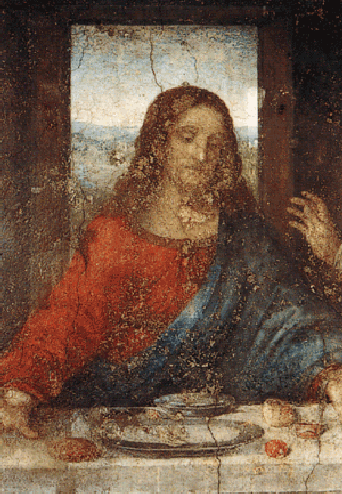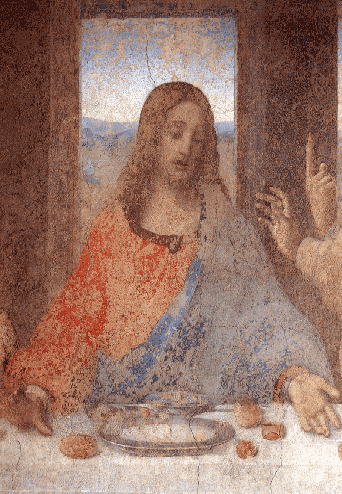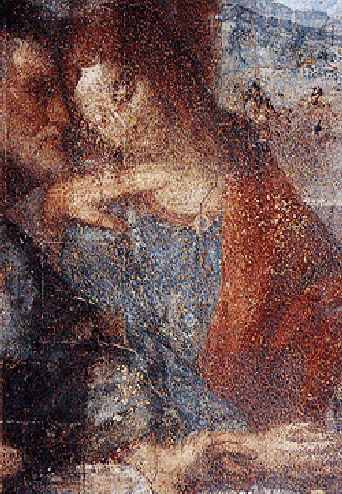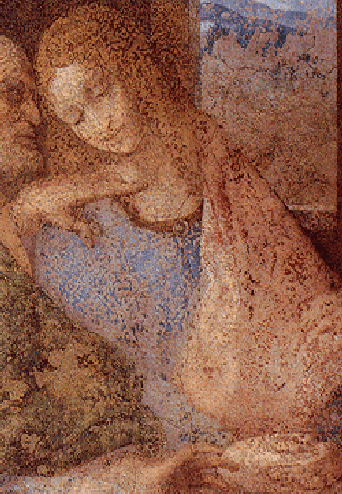Comparison of Leonardo
da Vinci's Jesus and St. John ,
before and after the restoration completed in 1999

Jesus before
restoration
|

Jesus after
restoration
|

John before
restoration
|

John after the
sex change (er, restoration)
|
From
http://ccat.sas.upenn.edu/~lbianco/project/restoration.html :
The most recent
restoration, which took more than five times as long as Leonardo's execution
of the painting, has been trumpeted by many but also condemned by many in
the art world.
Critics, chiefly American and English, call Brambilla's removal of earlier
restorations unnecessary and destructive, erasing fragments that might have
been faithful to the original. James Beck, Art History Professor at Columbia
University in New York, has been a prominent critic of the restoration. He
has called it 18 to 20 percent Leonardo, and 80% the work of the restorer.
Beck maintains that the areas that have been painted by Brambilla's watercolor
essentially repaints the masterpiece. He asserts that the painting does not
represent a conservation of what remains of Da Vinci's original, but represents
a repaiting of a work that doesn't even have an echo of the past.Even Martin
Kemp, Professor of History at Oxford and world expert on Leonardo, questions
Brambilla's decision to fill in some of the gaps of the painting with similar
tones of water-colors.
Although there are a number of critics, many have praised Brambilla's work.
This is a topic to be debated in years and decades to come since it will
never be certain as to whether the current state of the painting remains
faithful to Leonardo Da Vinci's masterpiece or not
 Back Back
 Index. Index.
|

